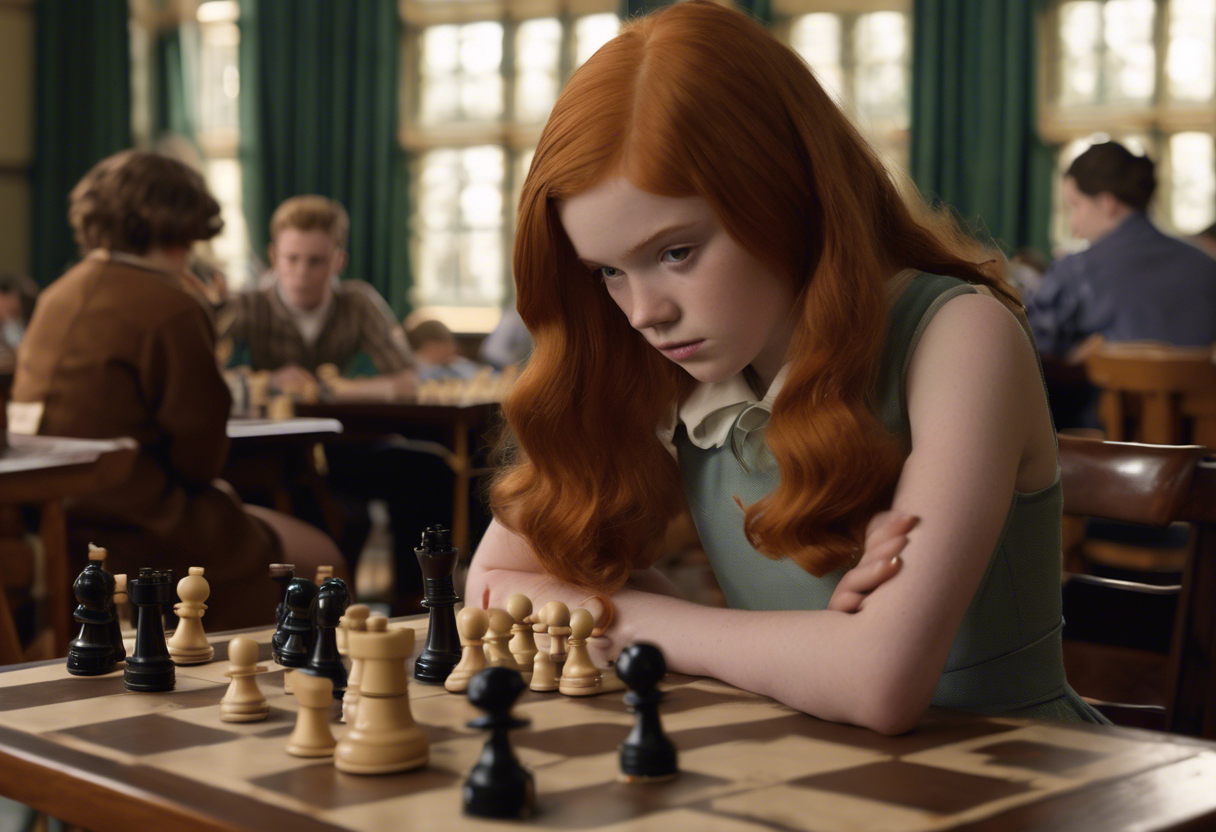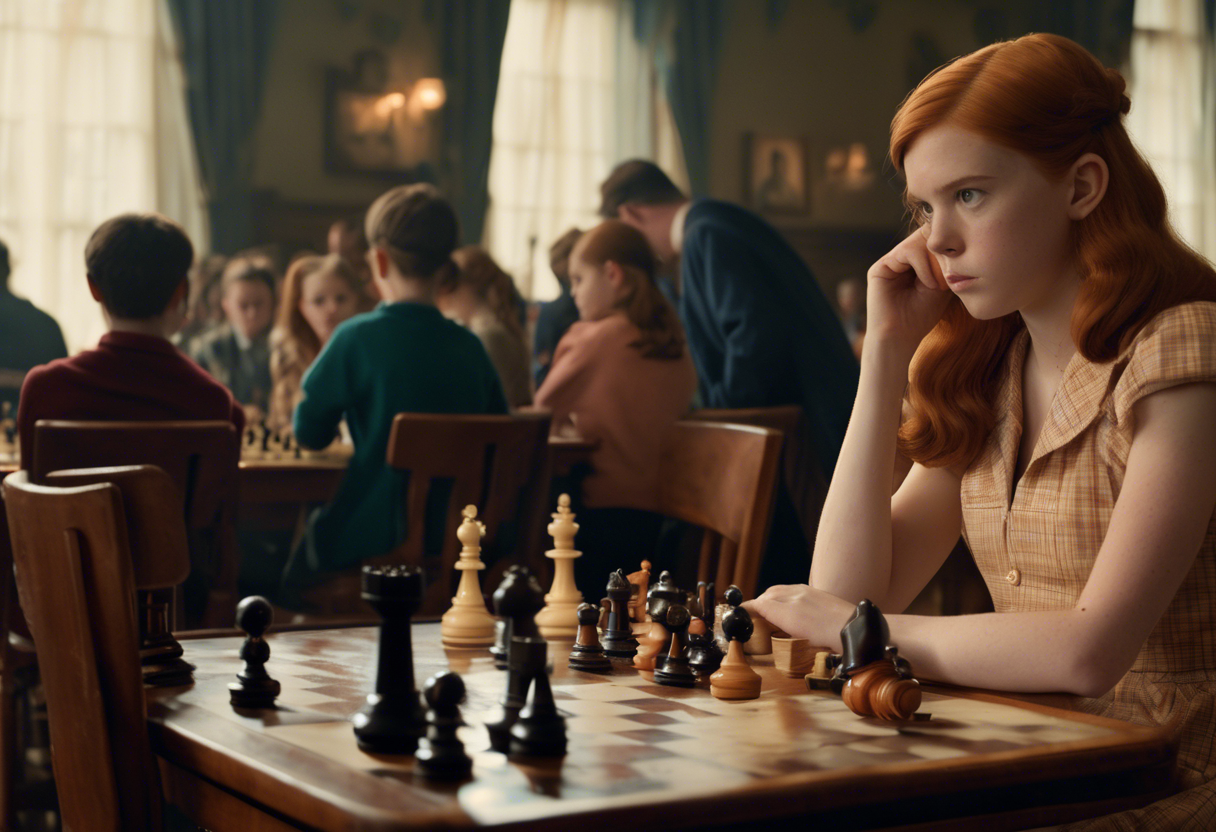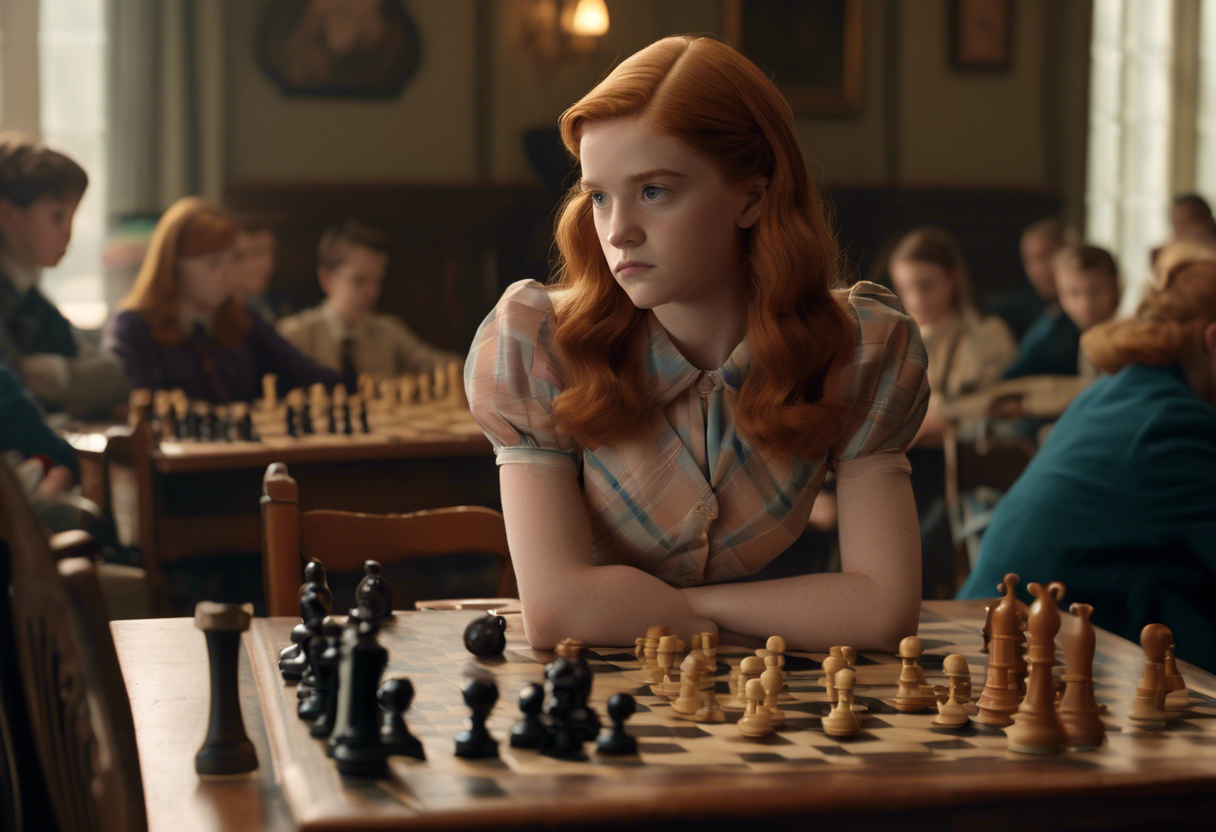Young Beth Harmon is the formative version of the central character from the Netflix series The Queen’s Gambit, embodying the early life and foundational experiences of the chess prodigy Elizabeth Harmon. Orphaned at the age of eight following her mother’s tragic death, Young Beth’s backstory reveals a solitary and troubled child who discovers chess as both a refuge and a battleground for self-expression and mastery. Her defining traits include prodigious intellectual ability, deep introspection, and a burgeoning but fragile emotional resilience. Within the narrative, Young Beth is crucial as the lens through which viewers understand the roots of her genius and her struggles, bridging personal trauma with the competitive, male-dominated world of chess. This character connects to broader literary traditions of gifted, isolated child prodigies and the archetype of the tortured genius striving for greatness amid inner demons and societal challenges[1][3][4].
In the series, Young Beth’s storyline charts her journey from the Methuen orphanage — where she is introduced to chess by the janitor, Mr. Shaibel — through early tournaments that expose her raw talent and competitive drive. Her major decisions often revolve around confronting her personal fears, her reliance on substances as coping mechanisms, and negotiating complex relationships, especially with caretakers like Mrs. Wheatley and fellow players such as Benny Watts. Key events include her initial encounters with organized chess and the internal conflicts arising from her outsider status as a young girl in a male-dominated field. These relationships and conflicts shape not only her growth as a chess player but also her psychological development, underpinning her victories and breakdowns alike[1][3][4].
Analyzing Young Beth’s character reveals a deeply complex personality. She is fiercely intelligent, intensely driven by the need to excel, and simultaneously vulnerable due to abandonment and trauma. Her motivations are anchored in a hunger for control and recognition, fueled by feelings of isolation. Strengths such as unparalleled strategic thinking and emotional tenacity are balanced by vulnerabilities including addiction, trust issues, and occasional self-destructiveness. This nuanced portrayal makes her compelling and relatable, as audiences see her not as a flawless prodigy but as a human grappling with internal and external conflicts. Her character development is marked by a gradual acceptance of self and external realities, highlighting themes of resilience and the pursuit of identity beyond mere skill[1][2][3].
Thematically, Young Beth symbolizes the struggle between genius and vulnerability, maturity emerging from trauma, and the quest for autonomy in a restrictive environment. Chess itself is a metaphor for life’s complexities, with the discipline and strategy Beth learns emblematic of her attempts to impose order on chaos both on the board and in her life. Symbolism in color, setting, and chess motifs underscores isolation, empowerment, and transformation. Through her character, the series interrogates issues of addiction, feminism in a male-dominated sphere, and the costs of excellence, thereby contributing to an overarching narrative about personal growth and the multifaceted nature of success[1][3].
Culturally, Young Beth Harmon has become a significant figure, particularly in popularizing chess and inspiring discussions around women in competitive intellectual domains. The character’s reception among fans has been enthusiastic, often highlighting her relatable struggles and brilliance. Young Beth’s portrayal — both in the series and in related adaptations — has influenced popular culture by challenging stereotypes of female intellect and resilience. Her character has sparked interest in chess clubs worldwide, game sponsorships, and increased representation of strong female leads in media, marking her as a catalyst for wider cultural conversations about gender and talent[1][2].
Critically, Young Beth has been lauded for the depth and authenticity of her depiction. Critics have praised the nuanced scriptwriting and Anya Taylor-Joy’s portrayal for bringing emotional complexity and realism to the role. Some analyses focus on the character’s representation of trauma and addiction without romanticizing these struggles. Interpretations vary, with some commentators highlighting her as a symbol of feminist empowerment while others underscore the darker elements of her internal conflicts as cautionary. Overall, the character has been met with acclaim for contributing to a richly textured narrative that resists simplistic heroism[1][2][3].
The legacy of Young Beth Harmon lies in her enduring appeal as a richly drawn character who embodies both the potential and pitfalls of genius. Her relevance persists in contemporary discussions on mental health, gender dynamics, and the celebration of intellect. Beyond The Queen’s Gambit, her archetype inspires writers and creators to explore complex female protagonists in competitive domains. Young Beth Harmon remains a touchstone for stories blending personal adversity with exceptional talent, cementing her place in modern cultural and literary landscapes[1][3].







